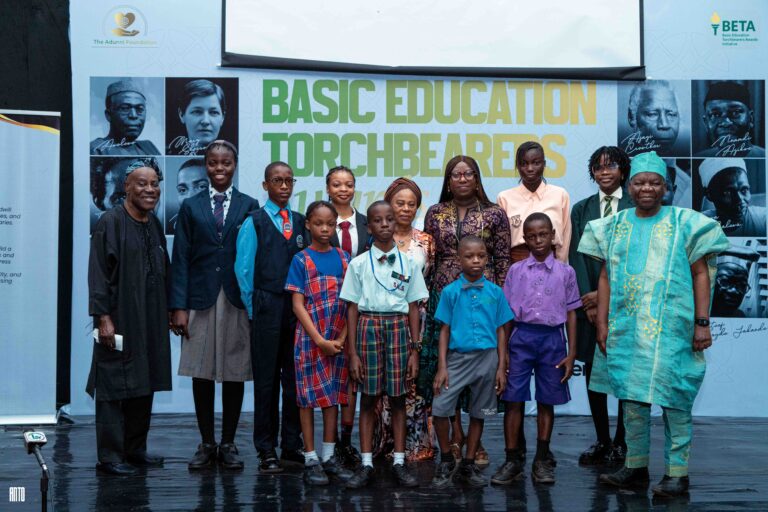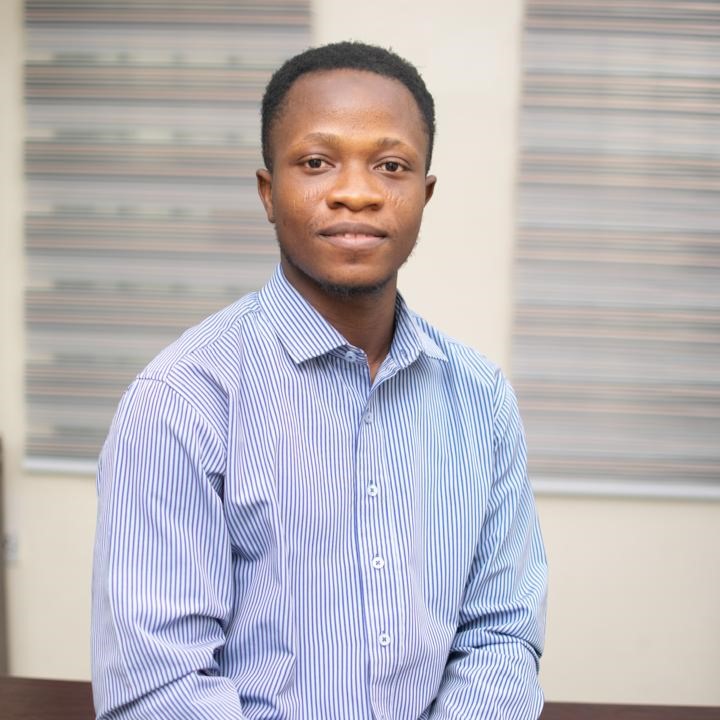Nigeria’s former Ambassador to the United Nations Educational, Scientific and Cultural Organisation (UNESCO), Michael Omolewa, an emeritus professor of the history of education at the University of Ibadan, has urged the government to rethink its approach to basic education, insisting that education should not only be inclusive but also integrated to unite skills, culture, and civic values.
Speaking at the Adunni Foundation’s maiden Basic Education Torchbearers Awards (BETA) event in Lagos, Mr Omolewa described education as the foundation of true independence and national progress.
The Adunni Foundation, a social impact organisation on Tuesday honoured the torchbearers of Nigeria’s basic education, declaring that true independence can only be achieved through quality and inclusive education.
At the event, the convener, Motunrayo Famuyiwa-Alaka unveiling the Foundation’s new movement tagged ‘Edupendence’, reiterating that education is the truest form of independence,
According to her, a nation’s strength lies not in its flag or political symbols, but in the ability of its citizens to think, learn, and lead. “Nigeria clocked 65 this year and it is fitting that we gather to honour those who keep the flame of learning alive and to remind ourselves that Nigeria’s infancy at 65 is tied to the underdevelopment of its educational sector.”
Mrs Famuyiwa-Alaka emphasised that the country’s future depends on building a strong base for basic education, especially the compulsory first nine to ten years of a child’s learning journey. “We must build up from the foundation,” she said, stressing that no country can rise beyond the quality of education it gives its youngest citizens.
True independence lies in freeing the mind through quality education
Delivering his keynote address, Mr Omolewa expanded on the event’s theme ‘True Independence: Honouring the Past, Celebrating the Legacy, and Building the Future’, reminding the guests and students of the pioneers of basic education in Nigeria.
He offered a historical reflection on how education has always been central to Nigeria’s pursuit of freedom and development, describing it as both a moral and civic duty to the next generation.
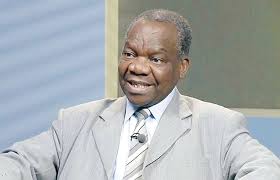
He said, “The colonial government recognised education as a critical pillar upon which independence would be built. Their vision was of a vibrant, inclusive education system, one that would reach both males and females, the young and the old, across all levels of education: primary, secondary, tertiary, formal, and non-formal.”
Mr Omolewa spoke of the deep roots of inclusiveness in Nigeria’s early education history. He recalled how Stephen Awokoya, the then Western Region Minister of Education, launched Universal Primary Education in 1955 and expanded it to include the adults.
“Awokoya thought that education for children was not good enough without education for adults. He said that it is the adults who cook, produce the food, train, and guide the children. Therefore, education should not only be inclusive, it should also be integrated.”
The professor drew a comparison between the inclusivity of indigenous education and the elitism that followed the introduction of western literacy.
“In indigenous education, everybody was included – farmers, fishers, and artisans among others. The inclusion was no longer there when literacy came. Only those who wanted to be educated were allowed into the school,” he said.
ALSO READ: Property Tax: ACRC, other experts seek citizen-centred, tech-driven system in Lagos
He argued that true independence lies in freeing the mind through access to quality education. “When you have access to education, your mind will be free, and you can explore what you want to do.”
Mr Omolewa further urged policymakers to invest more in inclusive learning that integrates skill, culture, and civic consciousness.
Africa’s true wealth lies in knowledge, not resources
Also speaking at the event, the chairman of the Adunni Foundation, Yele Okeremi offered a bold reflection on Africa’s developmental challenges.
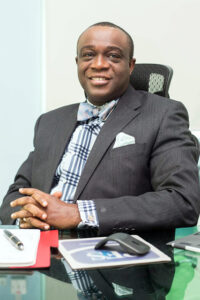
Mr Okeremi who is the founding and incumbent Chief Executive Officer of Precise Financial Systems Ltd (PFS) said, “If you take a look at Africa, you will see that people are just looking for money. Africa remains a dark continent despite producing over 60 per cent of the world’s resources.”
According to him, wealth does not come from the ground but from the heart and mind of people. He added that Africa’s true poverty lies not in the soil but in its undervaluation of knowledge, and that anyone that can create value can attract value.
“We are talking about people who become significant because they have been able to change humanity through attitude, knowledge, and contribution,” he said.
Birth of Edupendence
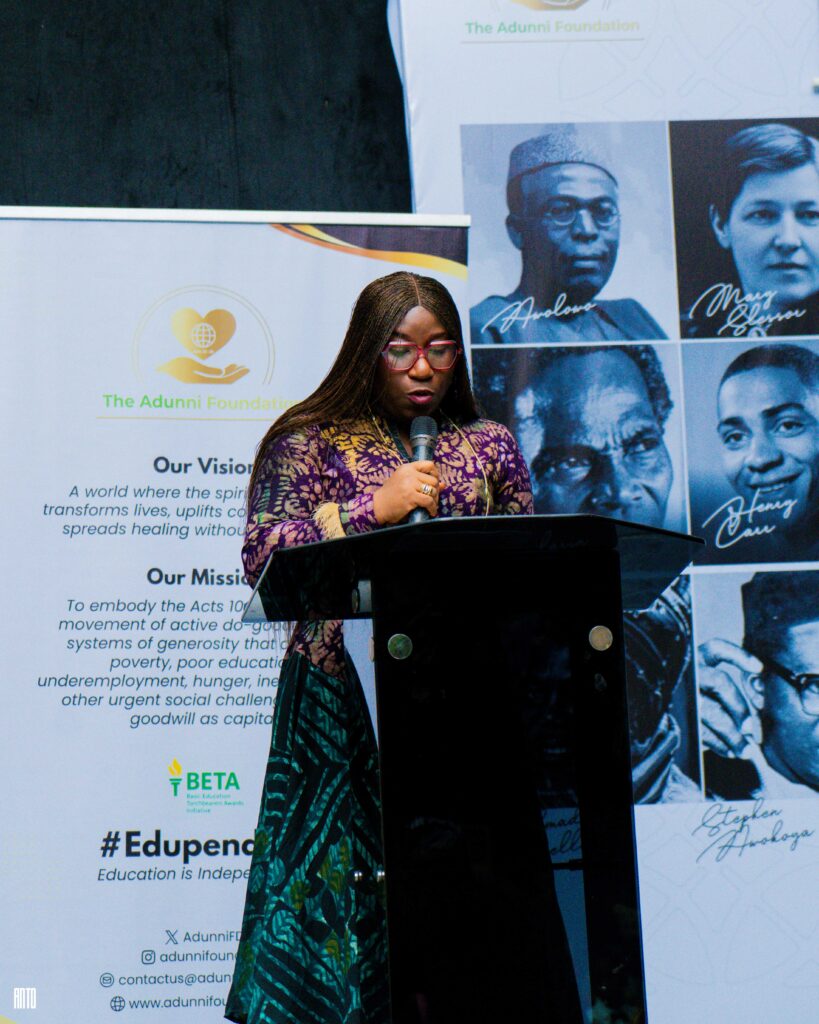
For Mrs Famuyiwa-Alaka, who has spent two decades in journalism and development work, Edupendence is more than a slogan; it is a philosophy. She said, “Education is independence. Nigeria will only be truly independent when it becomes intentional about educating its young minds.”
The new movement, according to her, seeks to build a network of “do-gooders” who will use knowledge and compassion to bridge inequalities. She added that it will also establish The Adunni Academy, envisioned as a space to nurture communities of learners, teachers, and advocates working to tackle poverty, hunger, and poor education through locally driven initiatives.
ALSO READ: Zambia’s success in school feeding reminds Nigeria of dream deferred
“After two decades in development work, I have seen that most aid in Nigeria comes from foreign donors. But as that funding declines, it is time to build our own backbone of generosity, a system by Nigerians, for Nigerians, to support the most vulnerable among us.
“There are between 18 – 20 million out-of-school children in Nigeria. If they are not in school, where are they? They are in homes serving as maids, forced child brides. Some of them are in markets as sales girls and boys, and others in mines working as labourers. We have to get them back to school because they are our future,” Mrs Famuyiwa-Alaka stressed.
Awardees
The BETA Awards honoured historic and contemporary figures who built Nigeria’s educational foundation, from missionary pioneers such as Mr and Mrs Henry Townsend, founders of the Christian Missionary Society (CMS) Schools; Mr and Mrs Hope Waddell, founders of Hope Waddell Institute, Calabar; Reverend and Mrs Birch Freeman, founders of the Methodist Mission Schools in Lagos; and Samuel Ajayi Crowther, among others.
Other posthumous awards went to Sir Ahmadu Bello, Chief Obafemi Awolowo, Alhaji Lateef Jakande, Mr Josiah Ogunlesi, Chief Stephen Awokoya, Chief Folayegbe Ighodalo,Dr Tai and Mrs Sheila Solarin, as well as Professor Akin Mabogunje. Also, Professor Pai Obanya, Professor Ngozi Osarenren, and Professor Michael Omolewa were recognised for their lifelong contributions to learning and civic development.
The BETA Most Brilliant Student Award was presented to top performers in national examinations. Salihu Umar of Kadwell International School, Kaduna; Michael Chiamaka of Chrisland College, Opebi; and Ogunsola Esther of Oritamefa Baptist Model School, Ibadan, were recognised as the overall best candidates in the 2025 Basic Education Certificate Examination (BECE) conducted by the National Examination Council (NECO).
Also, Michelle Okeke of Wesley Place Private School, Ikoyi-Obalende; Nwachukwu Kosisochukwu; and Alocha Daniel emerged as overall best candidates in the National Common Entrance Examination (NCEE) conducted by NECO.

